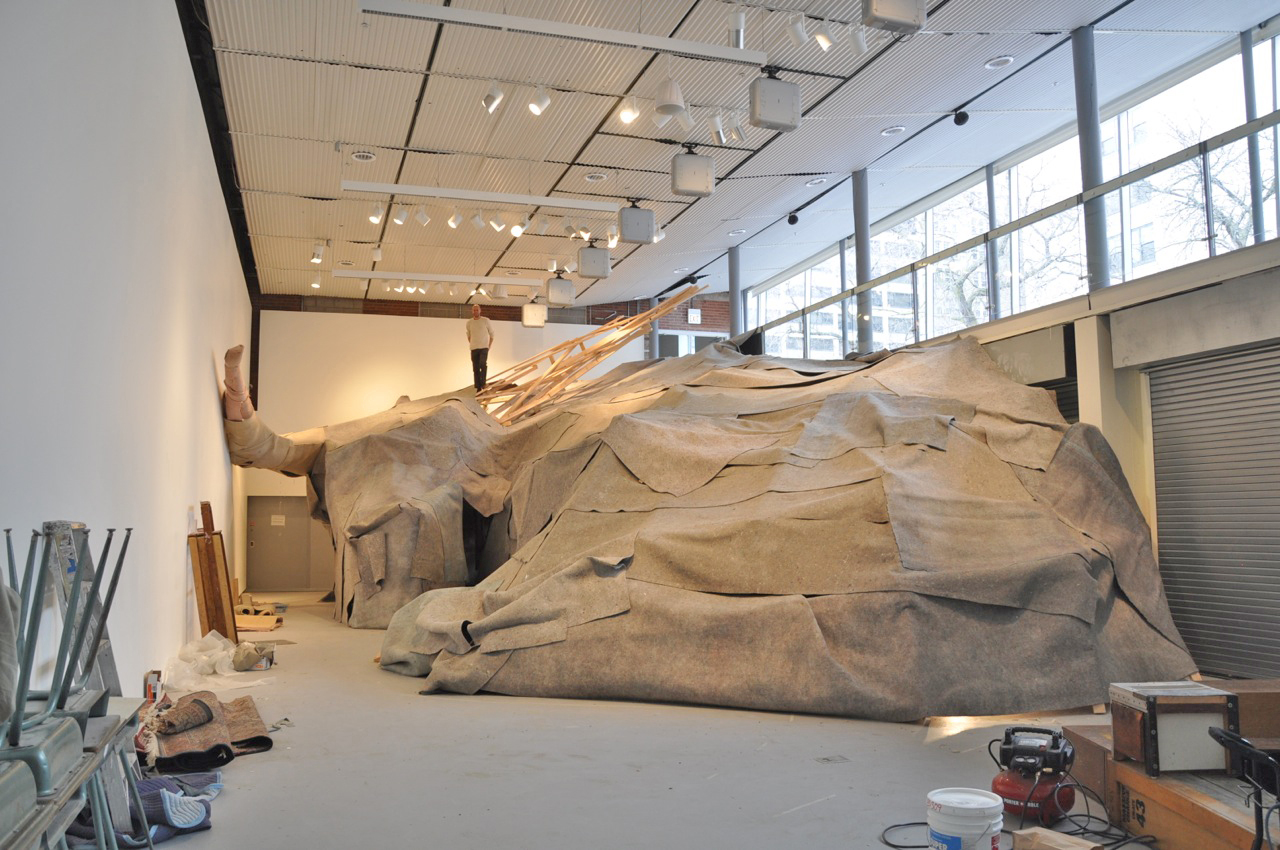
Practically every internationally recognized Chicago artist had his or her big break at the Hyde Park Art Center, the city’s oldest alternative art space. Gertrude Abercrombie was in the inaugural exhibition in 1939 and in the 60s, it was famously a launching pad for Gladys Nilsson, Jim Nutt and Karl Wirsum of the Hairy Who?, plus Imagists Ed Paschke, Christina Ramberg, and Roger Brown. More recently, prominent Chicagoans who exhibited, taught, or took classes at HPAC have included Michelle Grabner, Sanford Biggers, Christopher Wool, and Theaster Gates.
HPAC kicks off its 75th anniversary celebration April 13 with the opening of artist John Preus’ “The Beast” and the announcement of a new addition to the Center. A gift of $750,000 from John and Julie Guida—the first major contribution in a $6 million fundraising campaign—will be used to renovate 5,000 square feet of previously unused space in the building. The so-called Guida Creative Wing will become a suite of studios for the artists of the Center’s Jackman Goldwasser Residency, among others. “The new wing is about accessibility,” says HPAC Executive Director Kate Lorenz. “The public often doesn’t even know that there are artists working in the building. These renovations will create a physical space for easier interaction.”
“The Beast,” the exhibition ushering in HPAC’s 75th year, is an unusual installation and event space created by Preus. Chicagoans know him as the cofounder of the artist collective, Southside Hub of Production, but his work is recognized globally as he is also the lead fabricator for superstar artist Gates, and the principal designer and builder of Gates’ Dorchester Projects’ Archive House. In a novel twist, the artist is seeking donations via Kickstarter to support ongoing programming inside “The Beast.” (Check out Preus’s Kickstarter campaign for more information.)
John Preus, Study for “The Beast” (2014). Photo: Courtesy of the artist.
Part sculpture, part architectural intervention, “The Beast” is in the form of a gigantic, reclining steer constructed from discarded materials and furniture from recently closed city public schools. The animal’s “belly” is a common room for visitors to gather, outfitted with public school table tops bearing inscriptions made by generations of students. Through August 3, the installation will be open to the public every day, as well as for lectures, performances, potlucks, and other organized events.
Though accessible and welcoming, “The Beast” is not just a feel-good exercise in community, but an opportunity to examine it more carefully: “A community always has an inside and an outside, a sense of unity developed through exclusivity,” Preus says. “I am led to wonder if there are other ways to identify ourselves other than negation.”